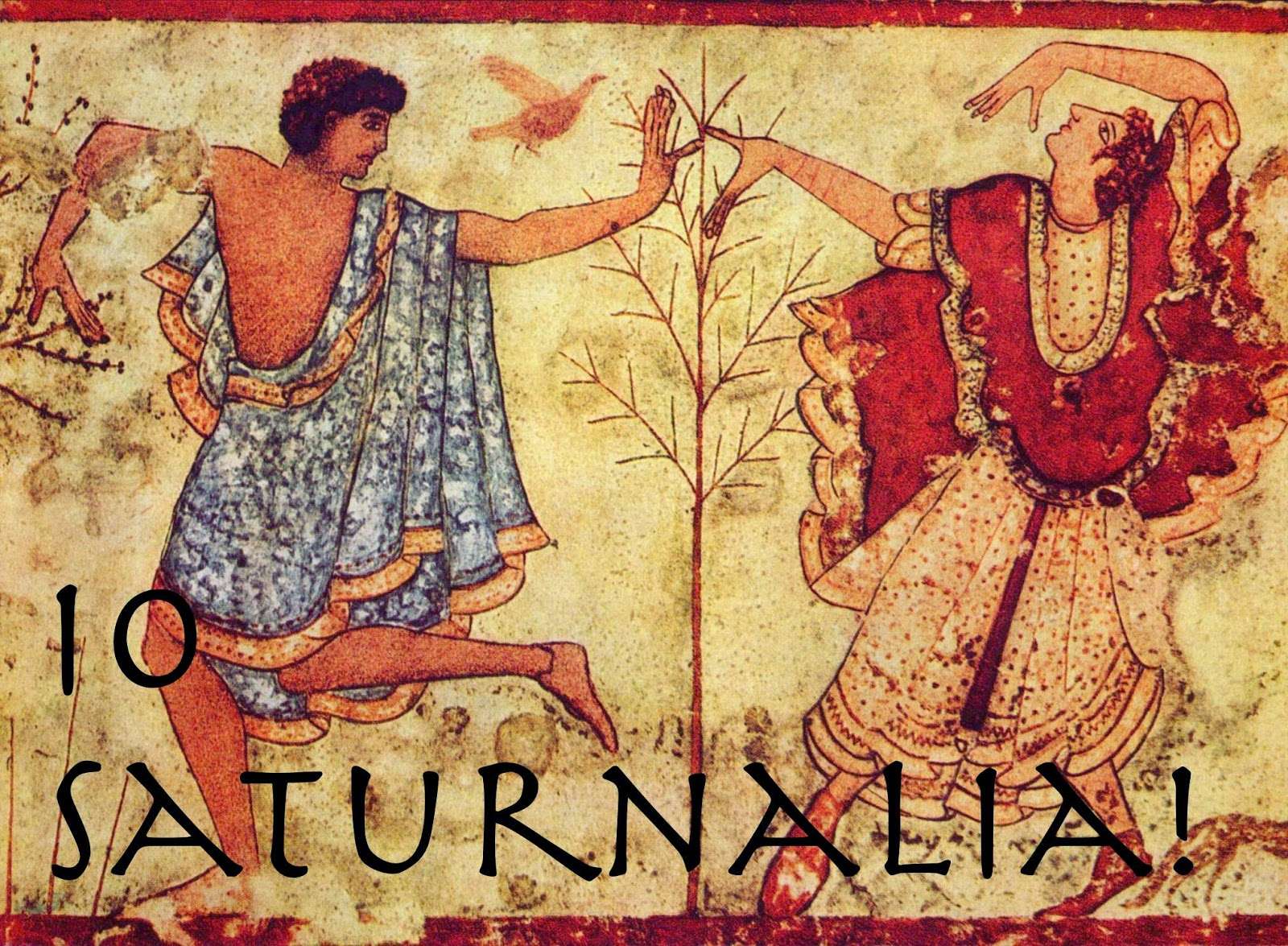The Volokh Conspiracy
Mostly law professors | Sometimes contrarian | Often libertarian | Always independent
Happy Saturnalia!
Continuing the Volokh Conspiracy tradition of celebrating this ancient Roman holiday

Today is Saturnalia, an ancient Roman holiday with a long tradition here at the Volokh Conspiracy, which we are now continuing at our new home with Reason. Admittedly, it's only a tradition in so far as I have put up a post about it every December 17 for the last several years. But, by blogging standards, that's a truly ancient tradition indeed.
The Encyclopedia Romana has a helpful description of Saturnalia:
During the holiday, restrictions were relaxed and the social order inverted. Gambling was allowed in public. Slaves were permitted to use dice and did not have to work. . . Within the family, a Lord of Misrule was chosen. Slaves were treated as equals, allowed to wear their masters' clothing, and be waited on at meal time in remembrance of an earlier golden age thought to have been ushered in by the god. In the Saturnalia, Lucian relates that "During My week the serious is barred; no business allowed. Drinking, noise and games and dice, appointing of kings and feasting of slaves, singing naked, clapping of frenzied hands, an occasional ducking of corked faces in icy water—such are the functions over which I preside."
As usual, this year we have no shortage of strong applicants for the position of Lord of Misrule. The incumbent president and many other politicians of both parties are formidable candidates, indeed.
Happy Saturnalia to all the friends, Romans, and Volokh Conspiracy readers out there!
Editor's Note: We invite comments and request that they be civil and on-topic. We do not moderate or assume any responsibility for comments, which are owned by the readers who post them. Comments do not represent the views of Reason.com or Reason Foundation. We reserve the right to delete any comment for any reason at any time. Comments may only be edited within 5 minutes of posting. Report abuses.
Please to post comments


Happy Saturnalia!
The Congregation Of Exalted Reason likes all holidays (within reason, of course), and Saturnalia is an especially fine holiday.
Are you the infamous Rev Kirkland of whom I have read so many fearful comments? Come, tell us your tale! Enlighten us noobies!
Just a humble observer who tends to cut against the right-wing grain of this blog.
I prefer education to ignorance, reason to superstition, tolerance to intolerance, modernity to backwardness, science to dogma, inclusivity to insularity. This seems to antagonize many movement conservatives, especially with respect to their authoritarianism.
I am associated with the Congregation of Exalted Reason, which comes in handy as special privileges for religious claimants expand. This also seems to bother some Conspiracy fans.
I have little appetite for conservative authoritarians in libertarian drag, but I have been known to deliver free beer to Conspirators.
Oh, and you no longer can tell so easily because this commenting system is more plain, but I have movie star looks and was nominated for an Academy Award,
Damn you, Ted Kramer, you talentless hack!
There seems to be some debate whether Saturnalia is a celebration of charity or debauchery.....I suppose as with much in life....a little bit of each might be the best mix.....just limit nude caroling...please
"an occasional ducking of corked faces in icy water"
Does that mean putting burnt cork on your face to blacken it, then getting dunked so the black washes off?
TREE OF SALVATION: Yggdrasil and the Cross in the North by G. Ronald Murphy, S.J. (Oxford, 2013) examines Christian influence on Norse iconography and literature. The Christmas Holidays are at Solstice, the Christmas Tree is Yggdrasil, the Tree is The Cross.
Didn't realize where my favorite end of year traditions actually originated from. Happy festivus as well!
"clapping of frenzied hands"
I've not clapped frenzied hands since college!
Are you also observing the 60 day Inter-calendary period that Romans observed prior to the adoption of the 12-month Julian calendar? I'm told it was constant partying from the end of December, then the tenth and last month, until March 1. That probably worked better in a purely agricultural society, though.